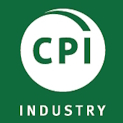UAE competing with advanced cities in implementing solar projects, says Etihad ESCO
Dubai, UAE, 6 November 2018: The Middle East region is moving towards renewable energy, in terms of solar, said Ali Al Jassim, CEO, Etihad ESCO, who stressed that the United Arab Emirates is one of the fastest-moving countries in adopting and implementing solar energy projects. “Today, we have one of the largest, if not the largest, solar on a single rooftop,” he said. “The capacity of that is 18.1 megawatt on a single roof; this can give you an indication where the United Arab Emirates and Dubai is moving towards solar panels. We are competing with the largest and most advanced cities in the world, when it comes to implementing solar projects.”
Etihad ESCO, Al Jassim said, have successfully executed projects in this regard. “We are approximately at 52-53 megawatts connected,” he said. “We have a pipeline of solar on the roof with a capacity of more than 30 megawatts under construction. Our target is to reach 100 megawatts in the coming months; next year we plan to have a number 50 megawatt connected, and so forth.”
Elaborating on solar power’s impact on cooling, Al Jassim issues a reminder that solar requires space. “Since air conditioning is 70% of your energy bill, you need huge space to compensate that percentage of energy consumption,” he said. “Most of the facilities, we find, don’t have that much space.” Today the regulation in Dubai, Al Jassim said, is to connect the solar with the grid, to get metering at the end of the year. “You connect to the DEWA grid, you do not connect the solar devices to any equipment,” he explained. “The power you generate you get compensated for, in terms of monetary value, at the end of the year, so it’s the same whether you connect it to your AC or you connect it to the grid and at the end of the day, you get credit for it.”
That being said, Al Jassim said that there are a number of technological innovations and smart devices being showcased at the Dubai Solar Show, during WETEX, which offer a lot of possibilities that may make direct connection of solar to power air conditioning possible. However, he added, a cost-benefit analysis must be administered to ensure that it is the most economic and beneficial step for the project in question. In this vein, Al Jassim said, economies of scale in solar, as with any project, are always the best option. “If you have 500 villas, it is better than 50, which is better than five,” he said. “Economics vary and makes your cash flow positive and your project implementable.”
Hannah Jo Uy is Assistant Editor at Climate Control Middle East magazine. She may be contacted at hannah@cpi-industry.com

